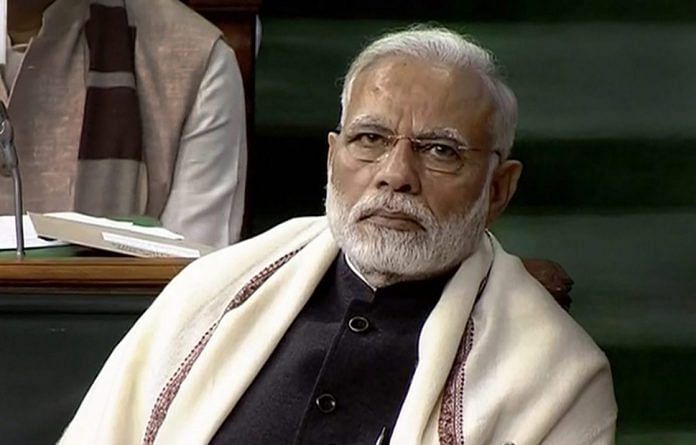An election Budget is usually marked by fiscal profligacy to voter-friendly finance schemes. But this government is confident about selling empty promises.
Arun Jaitley’s last full budget before an election tells us a great deal about how this government thinks. Conventionally, budgets before an election have been marked by fiscal profligacy to finance schemes that are designed to attract voters. But for governments that are as confident about selling their promises as this one is, there is another option available: make major announcements, without the complete backing of the budget numbers.
The most striking example is the announcement of a National Health Protection Scheme to cover 50 crore Indians. The scheme will provide up to Rs 5 lakh per family per year, making it the world’s largest government-funded healthcare programme. The trouble is the Budget does not provide any indication on how this will be funded, other than the finance minister’s promise that “adequate funds will be provided for smooth implementation of this programme”.
Deductions on interest income of senior citizens have been raised again, from Rs 10,000 to Rs 50,000. But this is only to take effect next year, from 1 April 2019. The standard deduction of Rs 40,000 is also to come into effect only from the assessment year 2019-20.
This government’s belief in its power to sell promises has allowed the finance minister to keep the budgeted fiscal deficit down to 3.3 percent of GDP. But it remains to be seen if this will be enough.
The entire budget revolves around what will happen to GST. The revenue receipts from GST are budgeted to be Rs 7.43 lakh crores, that is around 3 lakh crores more than the revised estimates this year. Granted the revised estimates cover only a part of the current year, and the GST system is expected to stabilise, but any further hiccups in GST can prove to be fiscally traumatic.
GST is also not the only economic measure that could be difficult for the economy to digest. The government’s penchant for implementing fashionable measures without taking overall processes into account is also taking its toll. This is most evident in the case of the food subsidy. This subsidy meets the gap between the economic costs of rice and wheat procured, costs of distribution and procurement incidentals on the one hand, and the revenue gained from the sale of the grain in the Public Distribution System on the other.
This gap can increase, not just due to an increase in the costs of the public distribution system, but also because the off-take from the public distribution system is lower. Central and state governments have increasingly taken the view that strict measures of identification must be implemented, even if that means some of the poor remain hungry. This has depressed off-take with an adverse effect on the food subsidy. This has no doubt contributed to the 2018-19 budget estimates for the food subsidy being Rs 29,041 crores, higher than the revised estimates for the current year.
This bits-and-pieces approach is also reflected in the Budget’s attitude to protectionism. Contrary to the Prime Minister’s contention in Davos that protectionism was as bad as terrorism, Jaitley has been willing to offer some protection to select industries. These include an increase in customs duties on mobile phones from 15 to 20 percent.
This continued obeisance to an open market, while protecting specific industries, may have its justification in the need to ensure China’s writ does not run all over the Indian market. But it brings with it the risk of returning to the days of lobbying, and worse, for specific budget concessions.
Jaitley’s 2018 exercise has multiple concerns ranging from elections to protectionism, but it fails to move beyond the piecemeal approach that has characterised the economic policies of the Modi government.
Narendar Pani is an economist and professor at the National Institute of Advanced Studies.



